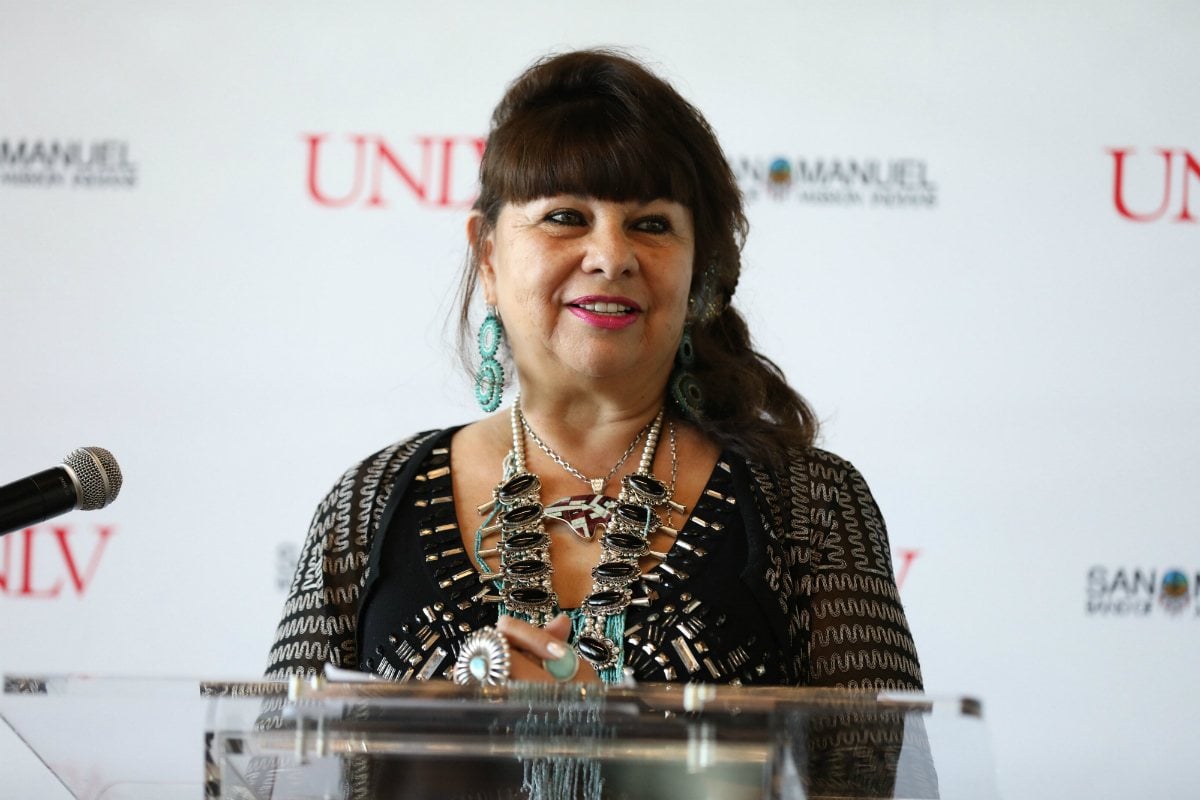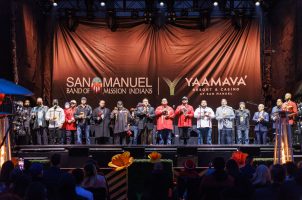UNLV Hospitality, Law Schools Receive $9M Donation from San Manuel Indians for Tribal Gaming Studies
Posted on: February 23, 2020, 12:09h.
Last updated on: February 21, 2020, 04:57h.
The UNLV hospitality and law schools have received a $9 million donation from the San Manuel Band of Mission Indians to further education in the areas of tribal gaming operations and law.

The university says it’s San Manuel’s largest out-of-state philanthropic gift bestowed on an educational institution. The Native American group is based in Southern California’s San Bernardino County.
Of the donation, $6 million will be used to incorporate courses on tribal gaming into existing gaming industry curriculum in the UNLV College of Hospitality. The funds will also establish the San Manuel Band of Mission Indians Endowed Chair in Tribal Gaming.
The press release explains the gift will create “new on-campus and online degree-track courses in tribal gaming” and develop “a set of online certificate courses for community members and Native Americans across the nation who are interested in learning more about careers in tribal gaming operations.”
The remaining $3 million is allocated for the UNLV Boyd School of Law, with the gift supporting a professor-in-residence, visiting professor, and program administrator who will be tasked with creating opportunities for interdisciplinary dialogue and research on governance, regulation, and economic issues.
Tribal Gaming Studies
The San Manuel Indians own and operate their namesake casino. The gaming floor features nearly 5,000 slot machines and more than 100 table games. Late last year, the casino announced new high-stakes tables and slots, including $25,000 per hand blackjack and $1,000 per spin machines.
Native American tribes in California that have gaming compacts with the state to operate Class III gaming (slot machines and table games) pay a flat rate per gaming position, and also share a percentage of their revenue.
California is the richest tribal gaming state in America. A 2017 study conducted for the American Gaming Association found that Native American casinos generated an annual economic output of more than $17.38 billion in the Golden State.
Seventy-three tribes have gaming compacts in California. The National Indian Gaming Commission reports nationwide tribal gross gaming revenue (GGR) – aka casino win – totaled $33.7 billion in the 2018 fiscal year.
“As tribal gaming continues to expand throughout the nation, it is critical for our college to be able to educate both current and future professionals on the operational nuances of tribal gaming,” said Stowe Shoemaker, dean of the UNLV Harrah College of Hospitality. “This gift not only helps us develop greater expertise in tribal gaming operations, it allows us to make this unique educational opportunity accessible to everyone.”
Legal Complexities
The Indian Gaming Regulatory Act (IGRA) was enacted by President Ronald Reagan in 1988. The landmark law provided the framework for Indian gaming – albeit a highly complex one.
In 1994, US Attorney General Janet Reno admitted that IGRA “provides a complex system of regulation and oversight that is designed to allow tribal governments to raise needed revenue.”
“In the tribe’s history, tribal government gaming is the only tool that has worked to meet our economic development objectives,” said San Manuel Tribal Chairwoman Lynn Valbuena. “Yet, the full potential of tribal gaming cannot be achieved if we do not also place emphasis on developing native people to manage our economic developments, including gaming.”
Related News Articles
Most Popular
Las Vegas Overstated F1 Race’s Vegas Impact — Report
Vegas Strip Clubs Wrestle in Court Over Animal Names
Mega Millions Reportedly Mulling Substantial Ticket Price Increase
Las Vegas Strip Stabbing Near The Strat Leaves One Man Dead
Most Commented
-
End of the Line for Las Vegas Monorail
— April 5, 2024 — 90 Comments -
Mega Millions Reportedly Mulling Substantial Ticket Price Increase
— April 16, 2024 — 6 Comments -
Long Island Casino Opponents Love New York Licensing Delays
— March 27, 2024 — 5 Comments -
Sinclair Broadcast Group Selling 7.91 Million Bally’s Shares
— April 12, 2024 — 4 Comments
















No comments yet